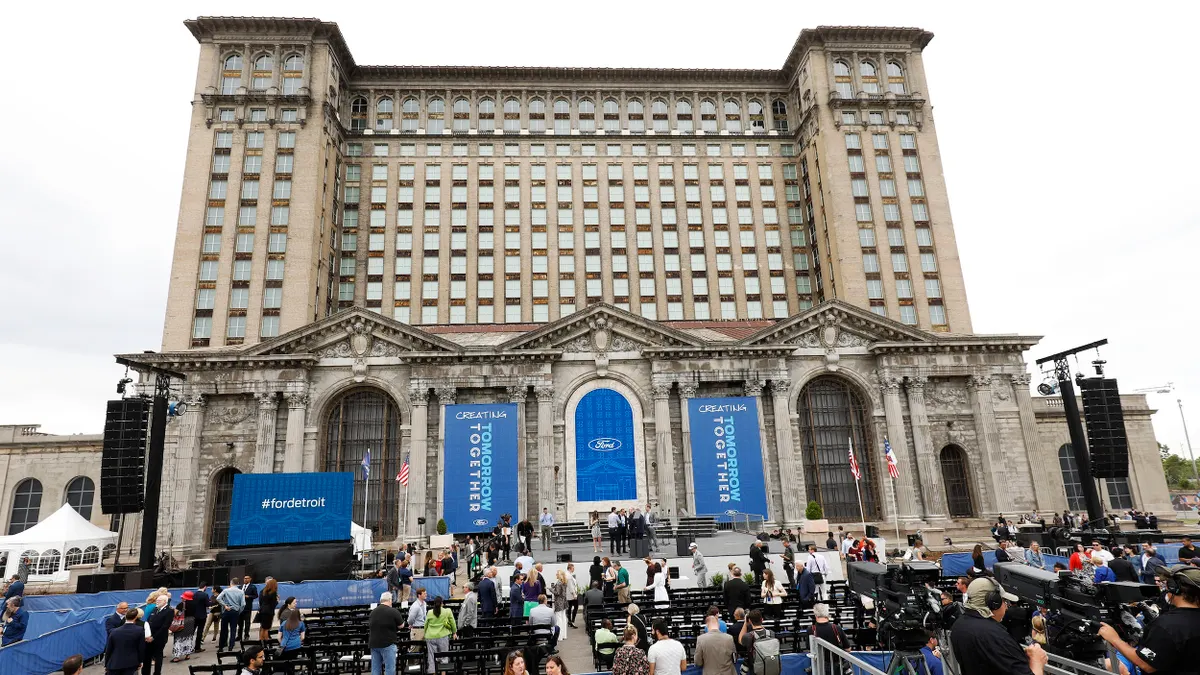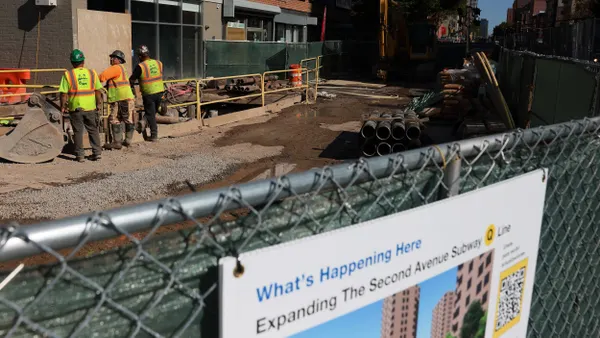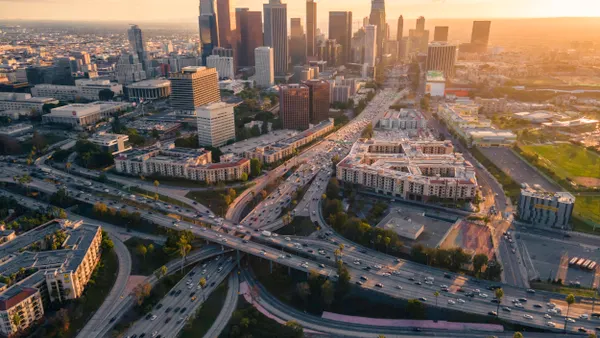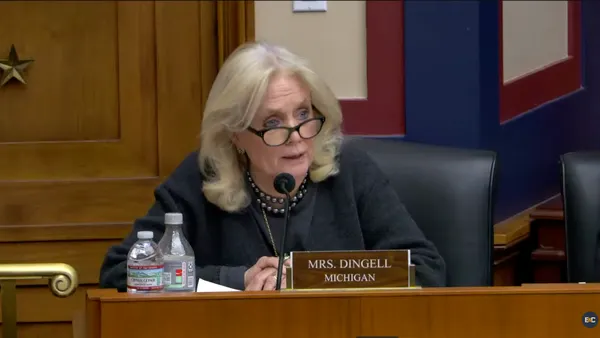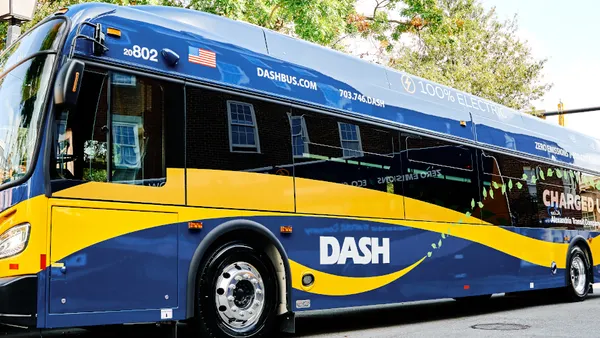Dive Brief:
- Research and engineering will begin on a multimodal transportation hub in Detroit, according to a memorandum of understanding between the city, the Michigan Department of Transportation and Michigan Central, a technology hub anchored by a former train station owned and restored by Ford Motor Co.
- The three partners have committed $40 million — $30 million in state funds and a $10 million federal grant — to the project, according to an Oct. 15 Michigan Central press release.
- The hub would serve intercity buses and a proposed extension of an Amtrak route from Chicago to Canada.
Dive Insight:
The Michigan transportation department owns an intercity bus station and the Amtrak station, which are both aging and considered beyond their useful life, according to the press release.
“Today’s MOU lays the foundation for a new multimodal transportation hub that will grow our regional economy, make downtown Detroit more vibrant, and connect residents and visitors to our communities,” Michigan Gov. Gretchen Whitmer said in a statement.
Other cities such as Atlanta, Boston, Dallas and New York City have or are planning new or renovated intercity bus stations. Multimodal stations, such as those in Los Angeles and Washington, D.C., serve both passenger rail and intercity buses, allowing connections among the transportation modes.
Amtrak operates two daily round trips between Detroit and Chicago. “The development of an intermodal station on the Michigan Central campus aligns with long-term Amtrak goals to expand service with our partners at the Michigan Department of Transportation, including our work with VIA Rail and Transport Canada to restore an international connection between Chicago and Toronto through Detroit and Windsor,” Amtrak said in an emailed statement.
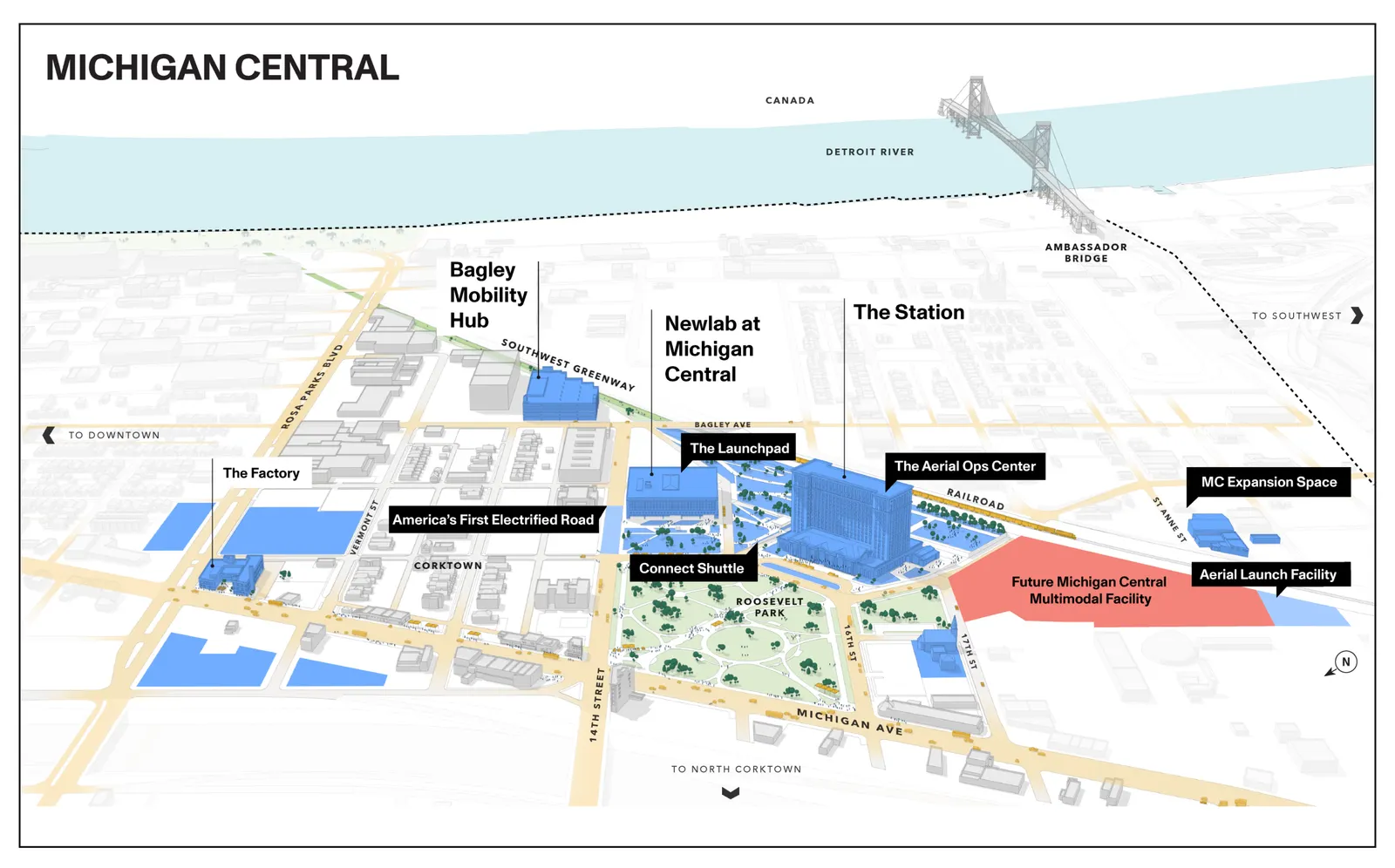
“For decades, Michigan Central Station was the gateway to Detroit, and we are excited to begin the work of re-establishing train service at a new multi-modal transit facility in the shadow of the station,” Chief of Infrastructure for the City of Detroit Sam Krassenstein said in a statement.
The formerly derelict train station reopened as a technology hub in 2024, surrounded by a 30-acre campus that houses some 250 companies and startups.
“As Detroit’s innovation ecosystem grows at an unprecedented rate, our transit infrastructure must evolve alongside it, by linking entrepreneurs and companies to emerging innovation zones and the opportunities they unlock,” Josh Sirefman, CEO of Michigan Central, said in a statement.
Project designs, timelines and funding and public engagement opportunities will be announced as the process advances, Michigan Central said in the news release.



